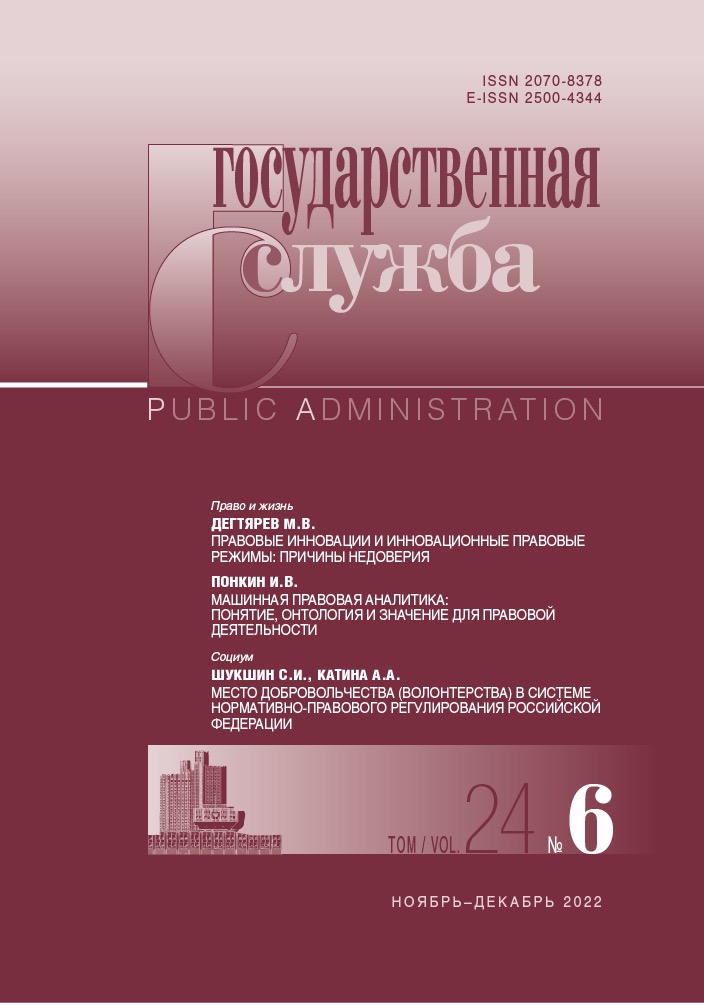Recommended link to article:
YURY ALEKSEEVICH KOLESNIKOVа
аSouthern Federal University
DOI: 10.22394/2070-8378-2022-24-5-27-29
Abstract:
Along with the growing role of the new trend of anti-globalization, the Russian Federation needs to pay particular attention to issues of digitalization and the digital transformation of the state. Despite the fact that most areas of social and economic life have already been successfully digitized, there are still gaps in public administration in terms of the legal framework. Digitalization is one of the main directions in the development of modern society. Numerous scientific works and competent opinions speak in its favor. This includes a positive impact, potential benefits for the economy, and the informatization of society as a whole. Some of the innovations have already been implemented and are being successfully applied in practice. It should be noted that digital technologies are universal, they can be used in a variety of areas. For example, they have long been included into everyday life (the introduction of electronic sick leave, employment history, etc.). Digital technologies are used to improve the efficiency of public authorities, as well as to improve the quality of work with citizens. They allow us to quickly identify the needs of the population and contribute to the achievement of more precise strategic planning and policy implementation in the development of these areas.
Keywords:
digitalization, digital government, digital relations, digital public administration, digital control, online reception, ESG transformation
Received:
March 29, 2022
References:
Inozemtsev M.I. Digital law: the pursuit of certainty. Tsifrovoye pravo. 2021. Vol. 2. No. 1. P. 8–28. In Russian
Petrov M., Burov V., Shklyaruk M., Sharov A. State as a platform. A (cyber) state for the digital economy / CSR report. Moscow, 2018. http://www.csr.ru. In Russian
Report: «Digital Government 2020. Prospects for Russia». The World Bank. Moscow, 2016. In Russian
Articles in Open Access mode are published under the Creative Commons Attribution 4.0 International (CC BY) license.

